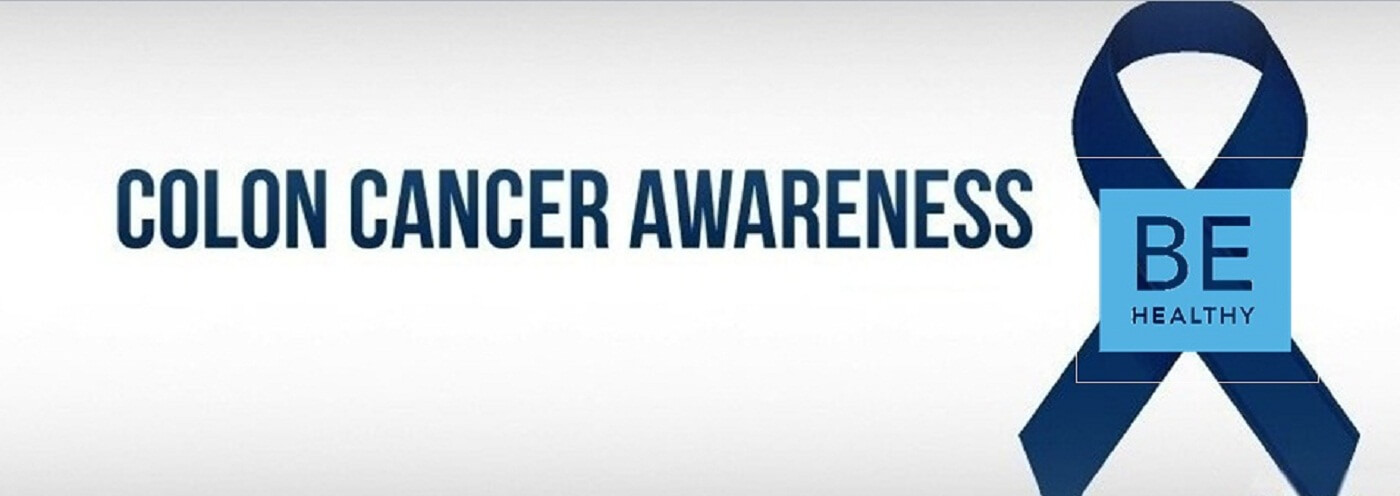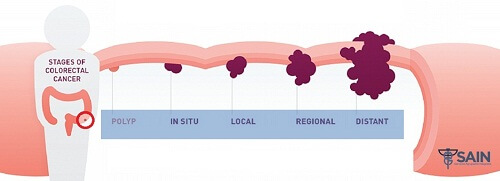Colon cancer is a disease in which malignant (cancer) cells are formed in the tissues of the colon. It is one of the most detectable and treatable forms of cancer, and more than 90 percent of all cases can be prevented with recommended screening. Read on to know more about this disease and how you can prevent it. #BEhealthy
Health history can affect the risk of colon cancer.
- Family history of colon or rectal cancer
- History of ulcerative colitis (ulcers in the lining of the colon) or Crohn’s disease.
- Personal history of colon cancer, rectum, ovary, endometrium or breast.
- Personal history of polyps (small areas of bulging tissue) in the colon or rectum.
Colon cancer, or other conditions, can produce these and other signs and symptoms. Talk to your doctor if you have any of the following:
- A change in bowel habits
- Blood in the stool (either very lively or very dark red)
- Diarrhea, constipation or feeling that the bowel does not empty completely
- Stool thinner than normal
- Frequent gas pains, bloating, fullness or cramps)
- Weight loss for unknown reason
- Feeling very tired
- Vomiting
Early detection is crucial for successful treatment. Consult with your doctor to see which tests and/or procedures should be scheduled according to your age and medical history.
- Physical exam and history
- Digital rectal exam
- Case Occult Blood Test Fecal (FOBT) for blood in the stool
- Barium enema rays of the lower gastrointestinal tract, also called lower gastrointestinal (GI)
series. - Sigmoidoscopy: A procedure to look inside the rectum and sigmoid colon (lower) and check for
polyps (small areas of bulging tissue), other abnormal areas, or cancer. - Colonoscopy: A procedure to look inside the rectum and colon for polyps, abnormal areas, or
cancer. - Virtual colonoscopy (CT colonography): A procedure that uses a series of X-rays called computed
tomography to make a series of images of the colon is used. - Biopsy: The removal of cells or tissues for a pathologist to observe under a microscope to check
for signs of cancer.
Habits that help reduce the risk of colorectal cancer:
- Eat more foods that are high in fiber such as fruits, vegetables, brown rice and bran.
- Eat more cruciferous vegetables such as cabbage, broccoli, cauliflower.
- Increase intake of milk and other low-fat dairy to provide calcium, can also take supplements of
calcium with vitamin D under medical supervision. - Increasing your intake of fish such as salmon and shellfish.
- Reduce intake of fats, butter and red meat.
- Limit your intake of foods on the grill with charcoal and avoid salt-cured foods.
- Exercising regularly.
- Avoid alcohol and tobacco.
Source: Cancer.org







